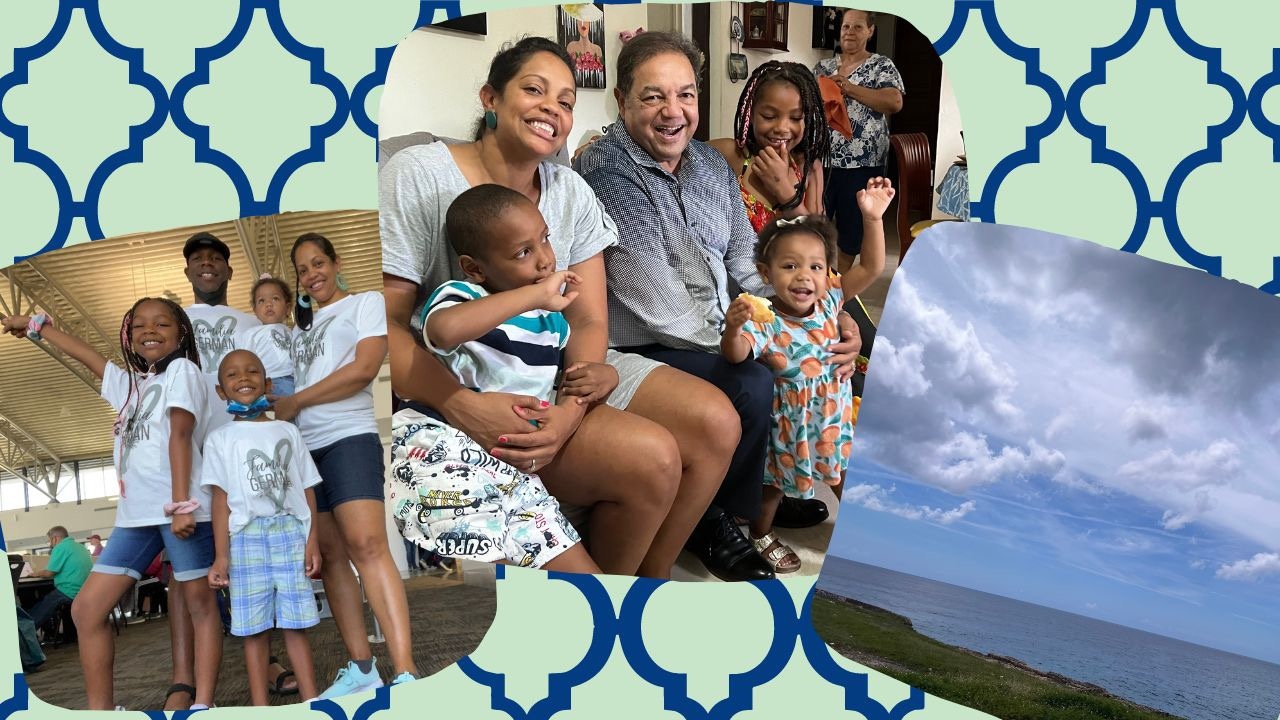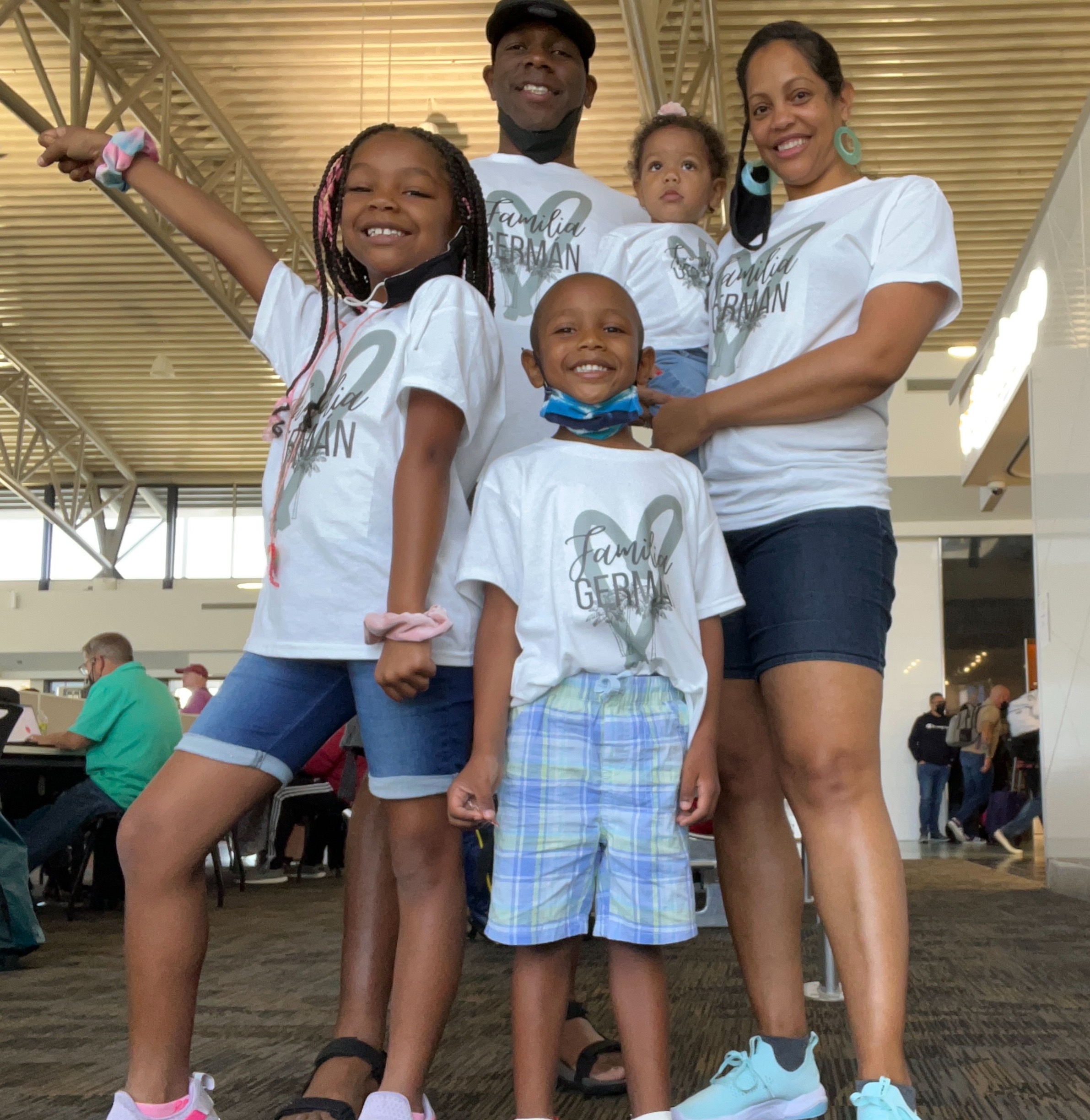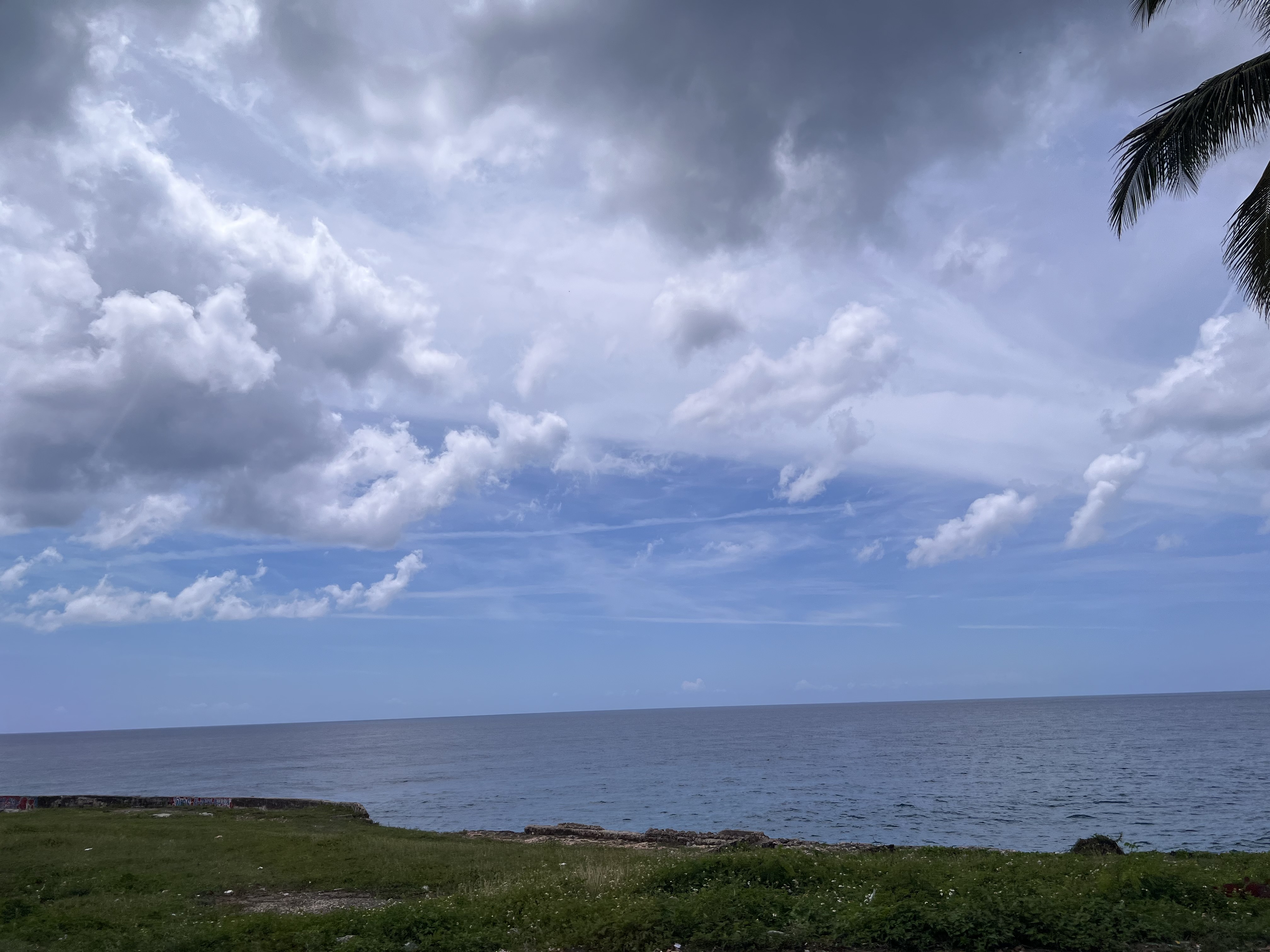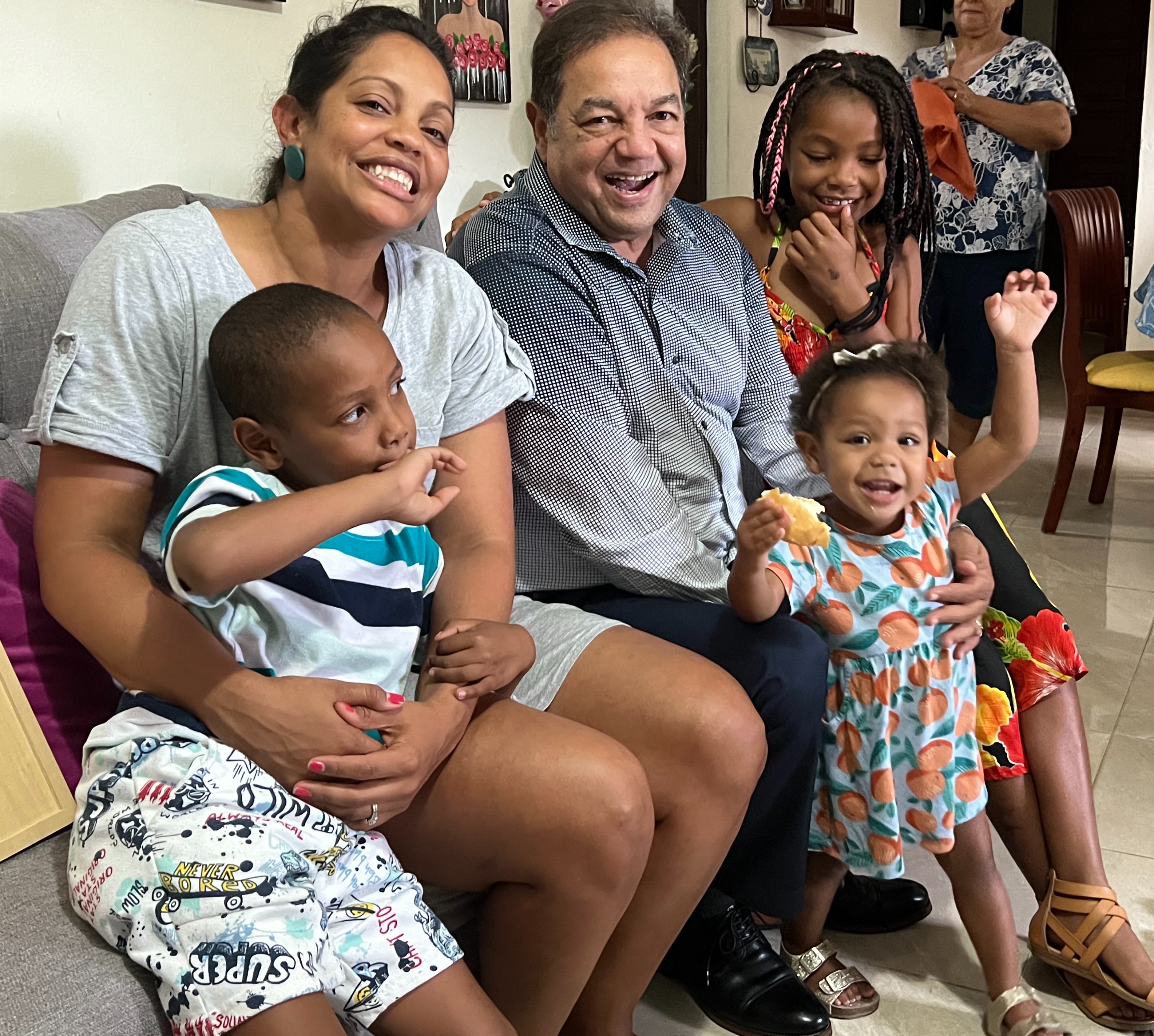
Still on Island Vibes & Processing...
May 02, 2022Still on Island Vibes and Processing…
Our family went on a family vacation recently to Dominican Republic. We took our three kids (7, 4, and 1 year old) and it was their first time out of the country. It was their first time seeing the land where I was born and where both of our parents are from. It was a powerful experience for all of us.

Lorena, Roberto, and the kids at the airport
And while I was there, I couldn’t help but think of three ideas affirmed and birthed by what I was, and was not seeing:
- We are Black.
- We are anti Black.
- White supremacy culture in the US is real
Let me explain...
How we are Black
On day 2 of our trip, my 7 year old daughter had a moment of realization and turned to Roberto and I and said: everyone here is Black. What she was noticing was that everyone was, indeed, Black, but also the lack of White people around highlighted our Blackness to her. She was able to look around and notice skin tones, notice culture, and notice normalcy. She wasn’t an anomaly. She wasn’t even unique. We were all one and we are all Black. (I spoke about Latinos and Blackness in this series Embracing Equity was doing for Latinx Heritage Month some time ago. Check it out, if you’d like.)
How we are anti Black
After we had that conversation with her, immediately, I couldn’t help but think about how much work we do in the Dominican Republic to ignore that; to not acknowledge that. We do so much to escape that truth and hide it. And yet it’s so obvious that a 7 year old could see that we are, in fact, Black. We don’t want to be Black, though, and we don’t want to be seen as Black. You, a non Dominican, dare not call us Black. We will let you know how non-Black we are. It is shame talking, though. It is racism talking. Now, I know I have an American lens on this matter, and I know it creates for me some limitations in understanding how the construct is explored and lived on the island. I want to make room for that- but I struggle with the thought that I’m way off. When White people here in the US don’t talk about race in their families, don’t acknowledge race, claim colorblindness, and just focus on ‘we’re all human’, the rest of us consider them to be ignorant and possibly enacting racism in their everyday lives because of their lack of knowledge. Why doesn’t this apply to Dominicans? We typically aren’t talking about this in our families. We say we acknowledge our African ancestors but do the minimum, if at all, to teach about them, celebrate them, or truly embrace them. It’s like: “Yes, we know. Now, shhh.” (Something I’ve actually been told before.) That’s avoidance and internalized racism speaking. We don’t walk to talk about this. Why? One definite answer is Haiti. The further we can be from Haitians, in every sense of that distance, the better. We hate them. We’ve enslaved them. They disgust us. It is painful for me to watch and listen to this rhetoric. It is horrific; that such a strong and vile sentiment can be embedded in our culture that way. They are biologically tied to us and yet we fight that truth through our whitening in physical and metaphorical ways.
How White supremacy culture is real
Basking in island life and a fresh new scenery it was so clear to me that the culture we think is ‘universal’ and ‘good’ is very much White American, yet again. In The Anti Racist Teacher: Reading Instruction Workbook, I talk about the work of Tema Okun and her research on White supremacy culture and its traits. I apply the ideas to literary instruction and while most readers and workshop participants accept that this does describe white American culture (it’s hard not to) the pushback comes when they try to say it’s the way of life for ‘humans’ … nah, son. We are not doing these things in Dominican Republic.
One of the traits Okun names is sense of urgency. A sense of urgency is NOT a thing on this island. Things take time. You have no control. It’s like people have acclimated to the concept of the water: it moves when it wants and we humans adjust.

El Malecón, Santo Domingo Este
Power hoarding, another trait, does exist, but it’s more of a gendered issue (not that it’s any better that way) and it still doesn’t function the same way. People aren’t out here trying to take away your power. They are not trying to accumulate power in a monopolizing way like the millionaires and billionaires do here in the US. There, it’s more of a material hoarding, which makes sense since it’s a more impoverished country. And I still have to think about this a bit more before I continue expanding.
Quantity over quality, another trait, is simply not a value shared in the country. Since there are many poor people, less is more. We make do with the little we have. We value gatherings of people, experiences of joy, peace, community, and safety. We are concerned for how we feel and how things went vs what we have or how much of it we have. I could go on, but my visit simply affirmed for me what I knew: this is a unique American culture and because of how it operates and oppresses, it results in White supremacy.

Lorena, her kids, and her father, gathered at her aunt's home
Overall, this was an important trip of (re)connection. I reconnected with my homeland and the breeze at the airport faithfully welcomed me, yet again. My husband reconnected with his family and embedded himself in society in ways he had not before. My children were able to connect with the place that birthed me and guides many of our values and way of life. It was a beautiful experience.
Before you go, visit our Instagram page where I talked about this experience, too.
Don't miss a beat!
Get our blog delivered to your email whenever we post!
We hate SPAM. We will never sell your information, for any reason.

